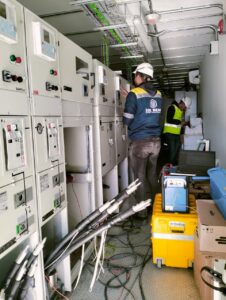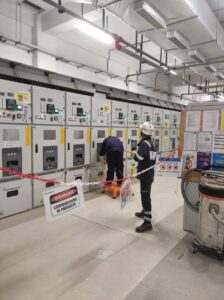Our planet faces massive economic, social and environmental challenges. To combat these, the Sustainable Development Goals (SDGs) define global priorities and aspirations for 2030.
They represent an unprecedented opportunity to eliminate extreme poverty and put the world on a sustainable path. Governments worldwide have already agreed to these goals.

Now it is time for business to take action.
Why do the SDGs matter for business?
The Sustainable Development Goals (SDGs) define global sustainable development priorities and aspirations for 2030 and seek to mobilize global efforts around a common set of goals and targets. The SDGs call for worldwide action among governments, business and civil society to end poverty and create a life of dignity and opportunity for all, within the boundaries of the planet.
Unlike their predecessor, the Millennium Development Goals, the SDGs explicitly call on all businesses to apply their creativity and innovation to solve sustainable development challenges.
The SDGs have been agreed by all governments, yet their success relies heavily on action and collaboration by all actors.
The SDGs present an opportunity for business-led solutions and technologies to be developed and implemented to address the world’s biggest sustainable development challenges.
As the SDGs form the global agenda for the development of our societies, they will allow leading oil and gaz companies to demonstrate how their business helps to advance sustainable development, both by minimizing negative impacts and maximizing positive impacts on people and the planet
Covering a wide spectrum of sustainable development topics relevant to oil and gaz companies – such as poverty, health, education, climate change and environmental degradation – the SDGs can help to connect business strategies with global priorities. Companies can use the SDGs as an overarching framework to shape, steer, communicate and report their strategies, goals and activities, allowing them to capitalize on a range of benefits such as:
- Identifying future business opportunities
- Enhancing the value of corporate sustainability
- Strengthening stakeholder relations and keeping the pace with policy developments
- Stabilizing societies and markets
- Using a common language and shared purpose
As a first step, it’s important to familiarize yourself with the SDGs and understand the opportunities and responsibilities they represent to your business.
The SDGs call on oil and gaz companies everywhere to advance sustainable development through the investments they make, the solutions they develop, and the business practices they adopt. In doing so, the goals encourage companies to reduce their negative impacts while enhancing their positive contribution to the sustainable development agenda. The degree and speed with which oil and gaz companies around the world develop more sustainable and inclusive business models will play a large role in the success of achieving the SDGs. In turn, all companies are impacted by the challenges that the SDGs address.
In this step we will explore what the SDGs are, how they came about, how oil and gaz companies can use them to their benefit, and how they build on existing business responsibilities by covering the following areas:
- What are the SDGs?
Designed for global action: Between 2000 and 2015, the Millennium Development Goals (MDGs) provided an important development framework and achieved success in a number of areas such as reducing poverty and improving health and education in developing countries.
- Understanding the business case
By developing and delivering solutions for the achievement of the SDGs, oil and gaz companies will discover new growth opportunities and lower their risk profiles. Companies can use the SDGs as an overarching framework to shape, steer, communicate and report their strategies, goals and activities, allowing them to capitalize on a range of benefits.
- The baseline responsibilities for business
The SDG Compass rests on the recognition of the responsibility of all companies – regardless of their size, sector or where they operate – to comply with all relevant legislation, uphold internationally recognized minimum standards and to respect universal rights.
REFERENCES
https://www.worldwildlife.org/threats/oil-and-gas-development
https://www.petrofac.com/en-gb/sustainability/sustainable-development/
https://www.bp.com/en/global/corporate/energy-economics/statistical-review-of-world-energy/oil.html
https://www.nmtv.tv/global-warming-increases-the-risk-of-river-flooding-over-the-coming-decades/
https://www.petrofac.com/media/5088/petrofac-2019-annual-report.pdf
https://eiti.org/document/how-eiti-contributes-towards-meeting-sustainable-development-goals
https://www.petrofac.com/media/5088/petrofac-2019-annual-report.pdf
https://www.bp.com/en/global/corporate/energy-economics/statistical-review-of-





